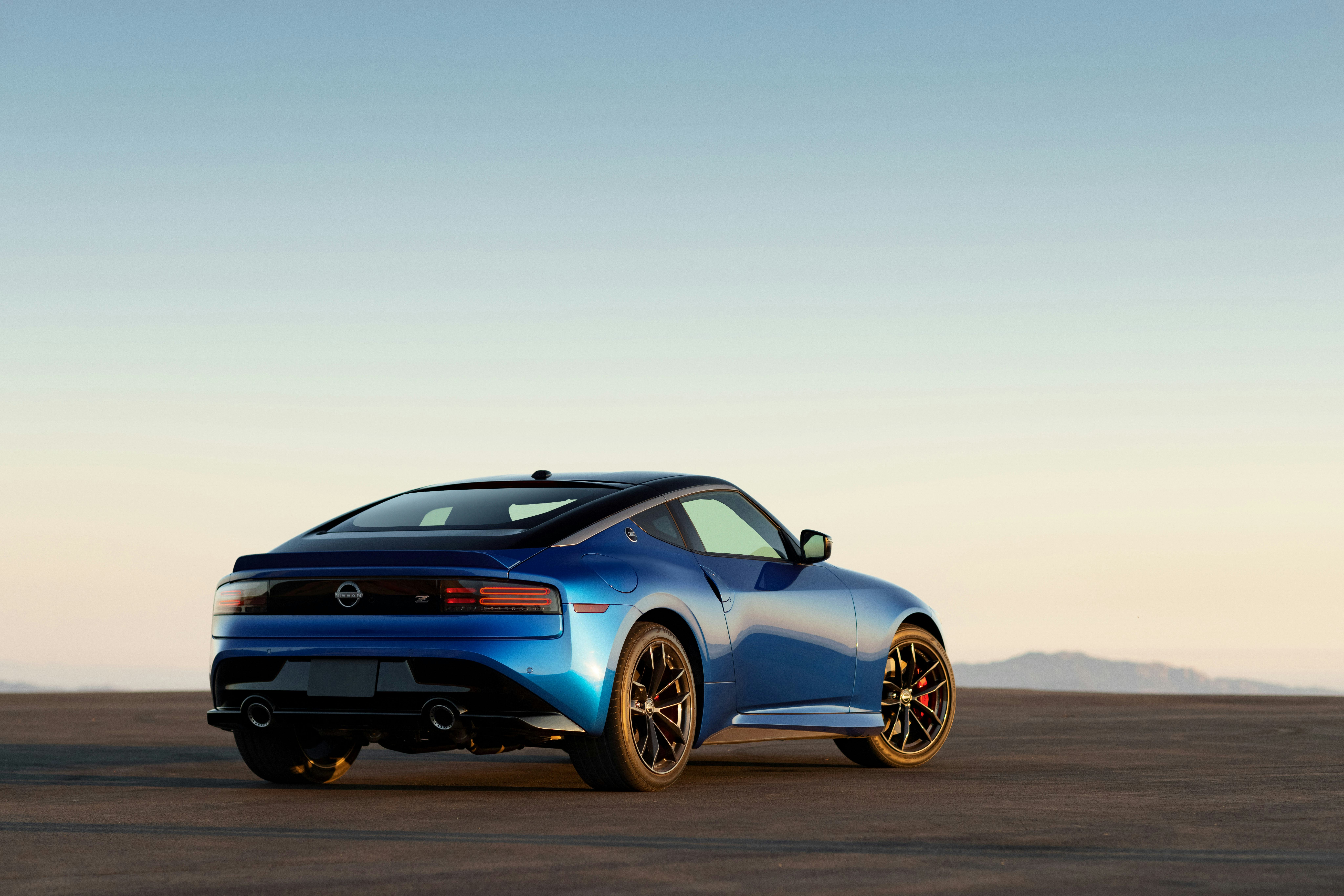
The manual transmission is on its way out.
Over the past decade, as automatic transmissions have gained gears and ubiquity, the practical advantages of a manual have disappeared. They have worse fuel economy as autos have shifted to 9- and 10-gear units optimized for highway cruising. And manual transmissions aren’t even cheaper anymore, thanks to fewer buyers wanting to actually spec them.
Manual transmissions have now been relegated to just a handful of cars. So what's the enthusiast to do if you wish to, in the eye-rollingly cliche car journalism expression, “row your own?”
Enter the 2023 Nissan Z.
The new Z is the latest in the five-decade, seven-generation line of storied Nissan sports cars. It drops the numerical prefix in the US for the first time, as otherwise, it would go from 370Z to 300Z because of reduced engine displacement, and we can't have smaller numbers in our car names.
It takes a significant chunk of the outgoing 370Z's platform and drivetrain to save costs. But that's ok because it succeeds at keeping costs down, and it was an excellent platform to begin with.
Under the hood is an excellent 3.0-liter twin-turbo V6 borrowed from the Infiniti Q50 and Q60 Red Sport, making an impressive 400 HP and 350 lb-ft of torque. That's 400 horsepower for $40,000, as Nissan reps have told me several times, which is a pretty solid bang for the buck.
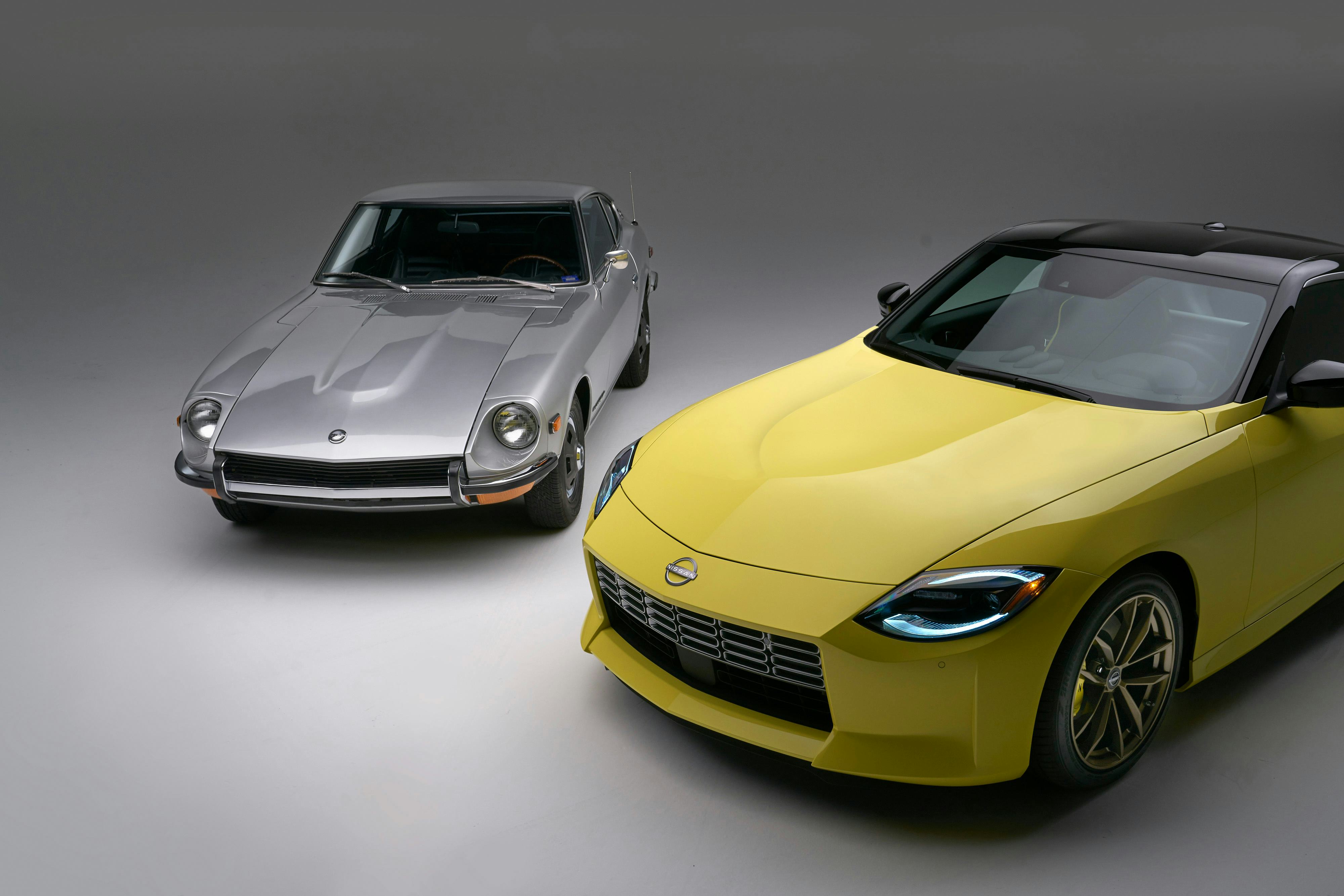
The design — The Z, which I drove around San Diego for a few hours last week, looks better than ever. It draws inspiration from a long line of prior Z cars, with a long hood and short rear deck with a total length five inches longer than the 370Z, although with the same wheelbase.
I'm a massive fan of using LED lights as design elements rather than having dull bulbs, and the Z knocks it out of the park. The eye-like half-circles of the front headlights are inspired by the Japan-only 240ZG from the '70s, and the taillights are a modern take on the 300ZX from the early '90s. Teens from that era will instantly recognize the rear end, and the nostalgia will sell more than a few Zs.
The car is enjoyable to drive, with short throws on the six-speed manual and a forgiving clutch. Even more forgiving is the fantastic SynchroRev Match system automatically matches the engine speed to your gear selection before you release the clutch, allowing for jostle-free downshifts when you're looking to drop the hammer.
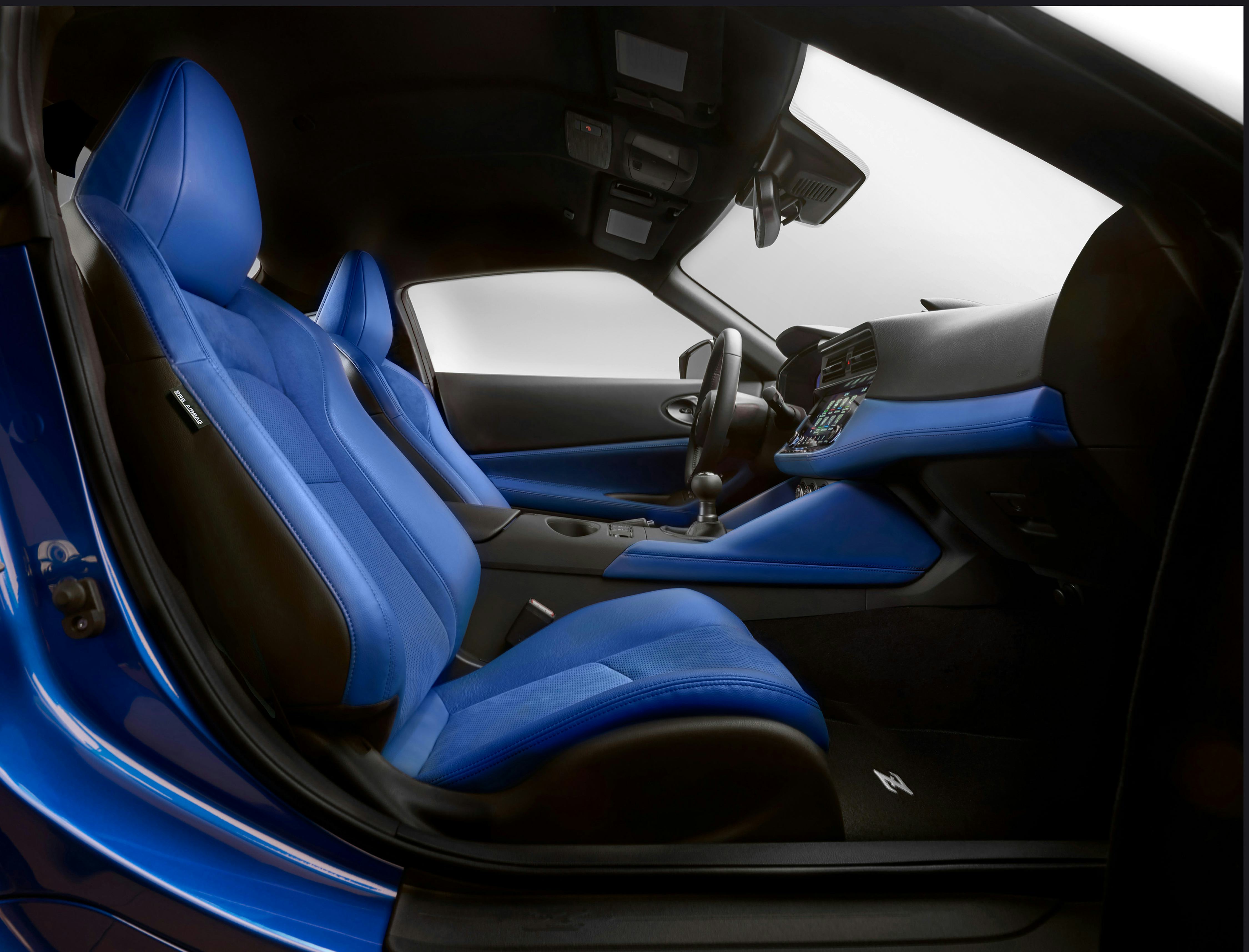
A nine-speed automatic is available for no charge, though I imagine manuals will be a popular option on the Z. It should be, anyway, since this is an enthusiast car and manuals are so hard to find. Enthusiasts will also find a manual parking brake, which may come in handy if you're looking to practice your drift game.
Though much of the interior will be recognizable as a carryover from the 370Z (including the entire trunk and the climate and window controls), the dash cluster and infotainment screen are new. The cluster was designed with input from a Nissan racing driver, so the tachometer hits redline precisely at 12 o'clock, and things like oil pressure and differential temperature are displayed prominently. A green-yellow-red shift indicator helps maximize your performance, too.
Nissan has made it easy to buy, which is better for customers and simplifies production for a company trying to squeeze every dollar out of this little sports car.
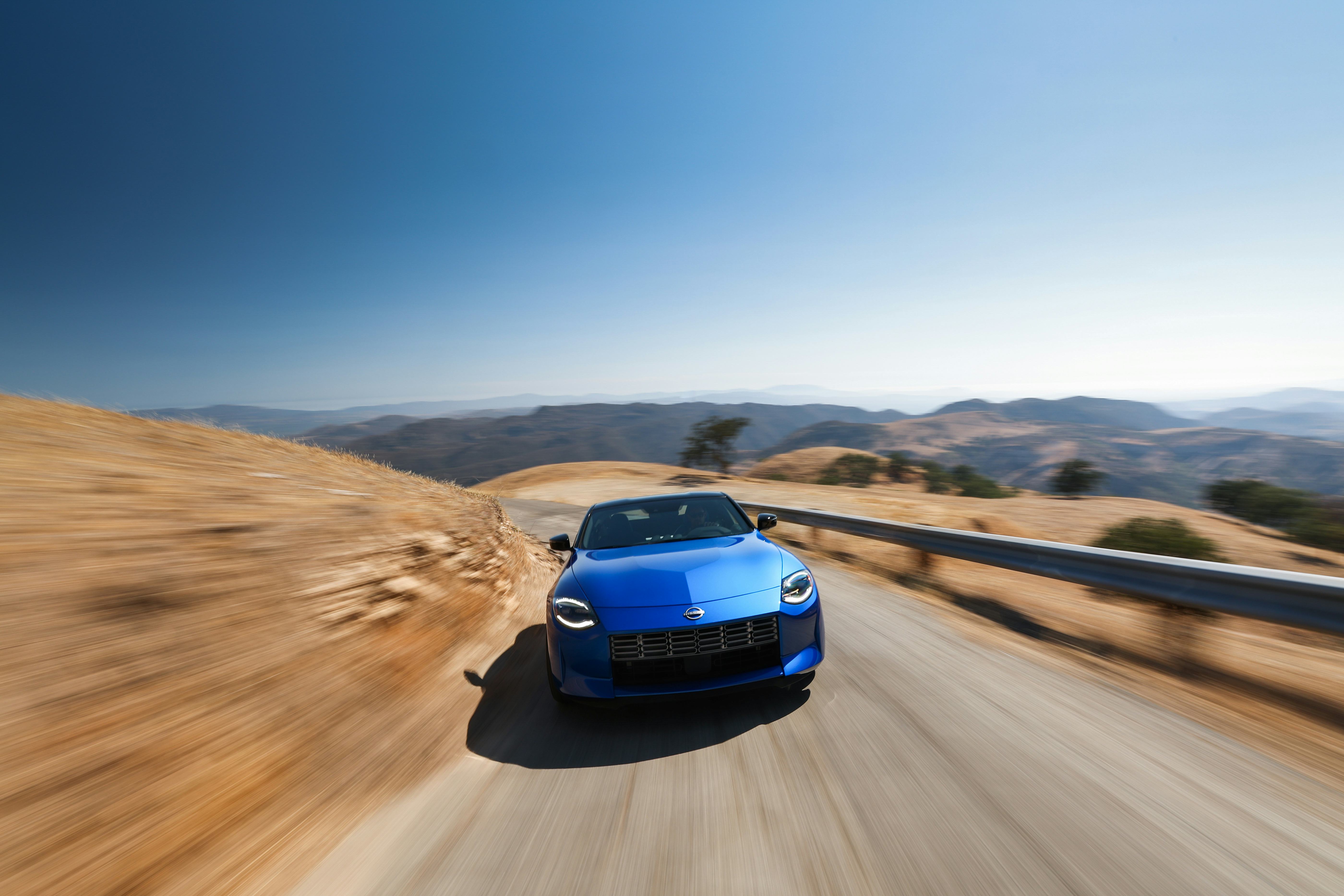
The trim levels — There are just two: Sport for $41,015 and Performance for $10,000 more. Moving up gives you a whole litany of improvements including a limited-slip diff, better brakes, 19-inch forged aluminum-alloy wheels and high-performance tires, a rear spoiler, leather seats, heated seats, and a 9-inch touchscreen featuring wireless Apple CarPlay and a Bose audio system.
The Sport model only gets an 8-inch screen, 18-inch wheels, and wired CarPlay, but it still makes for an inviting platform for folks looking to maximize their fun-to-dollar ratio. Android Auto is wired regardless of trim, weirdly. Nissan pointed out that using an older engine means tuning houses will already have a wide variety of performance parts ready for Z buyers who want to upgrade their rides. There are a bare handful of options, including an upgraded Nismo exhaust that you'll definitely want to grab.
But it's the design and the heritage that takes it home for me. The new Z is drop-dead gorgeous, particularly the Seiran Blue tester I had. Make sure to opt for the blue interior, which is mind-bogglingly good-looking. Black is so boring. It can't help but bring a smile to your face, especially if you grew up pining for an old-generation Z. The proportions are near-perfect, the driving experience is sublime, and the design (especially the brake lights) is pure Z.
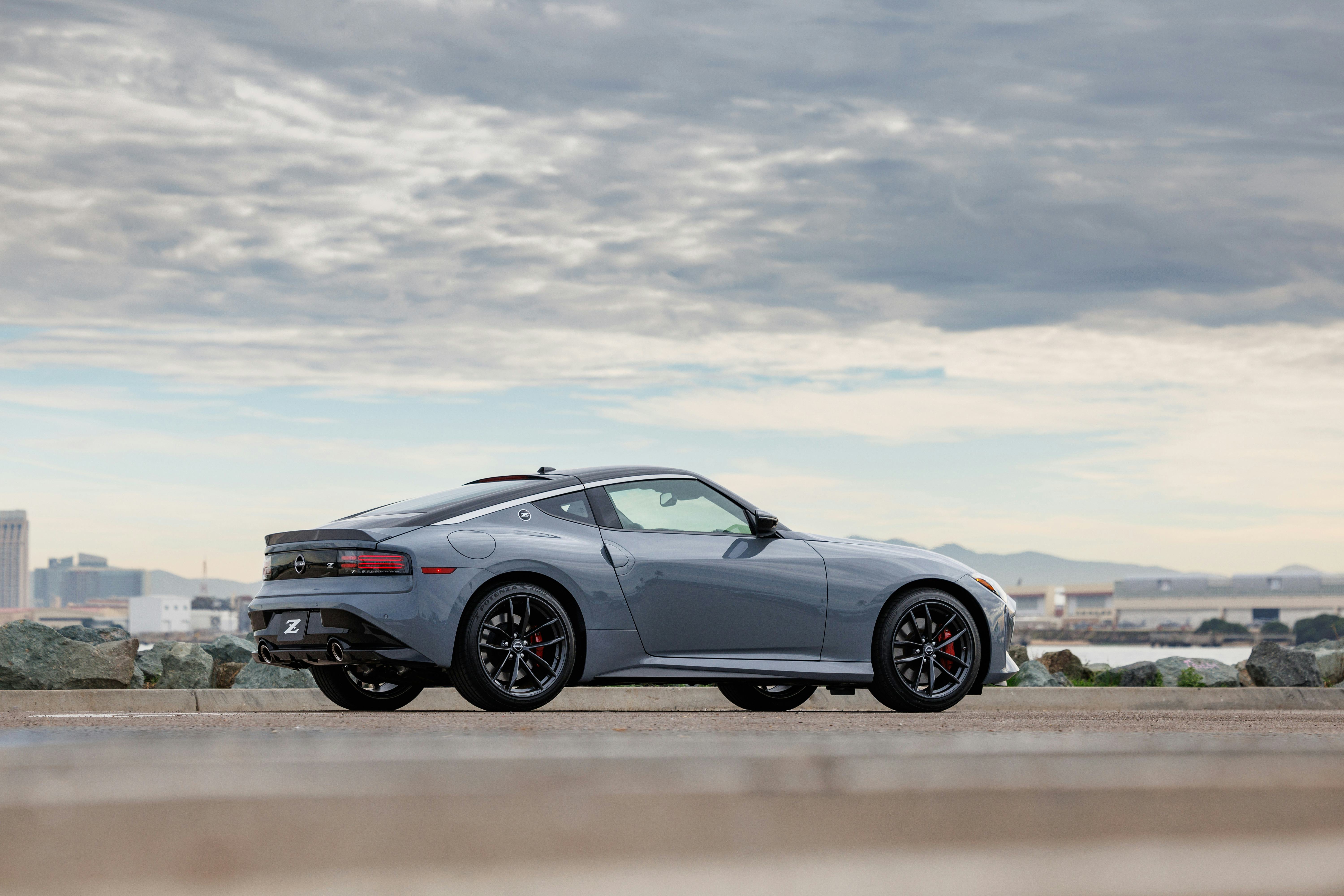
The Inverse analysis — This is the best affordable sports car you can buy right now, delivering the look, the performance, and the sheer delight that only a proper sports car can — four hundred horsepower for forty thousand dollars. The Toyota Supra is pricier for 100 fewer horses.
Z is literally the last letter in sports cars. It arrives in dealerships this summer.
One Cool Detail: All The Details
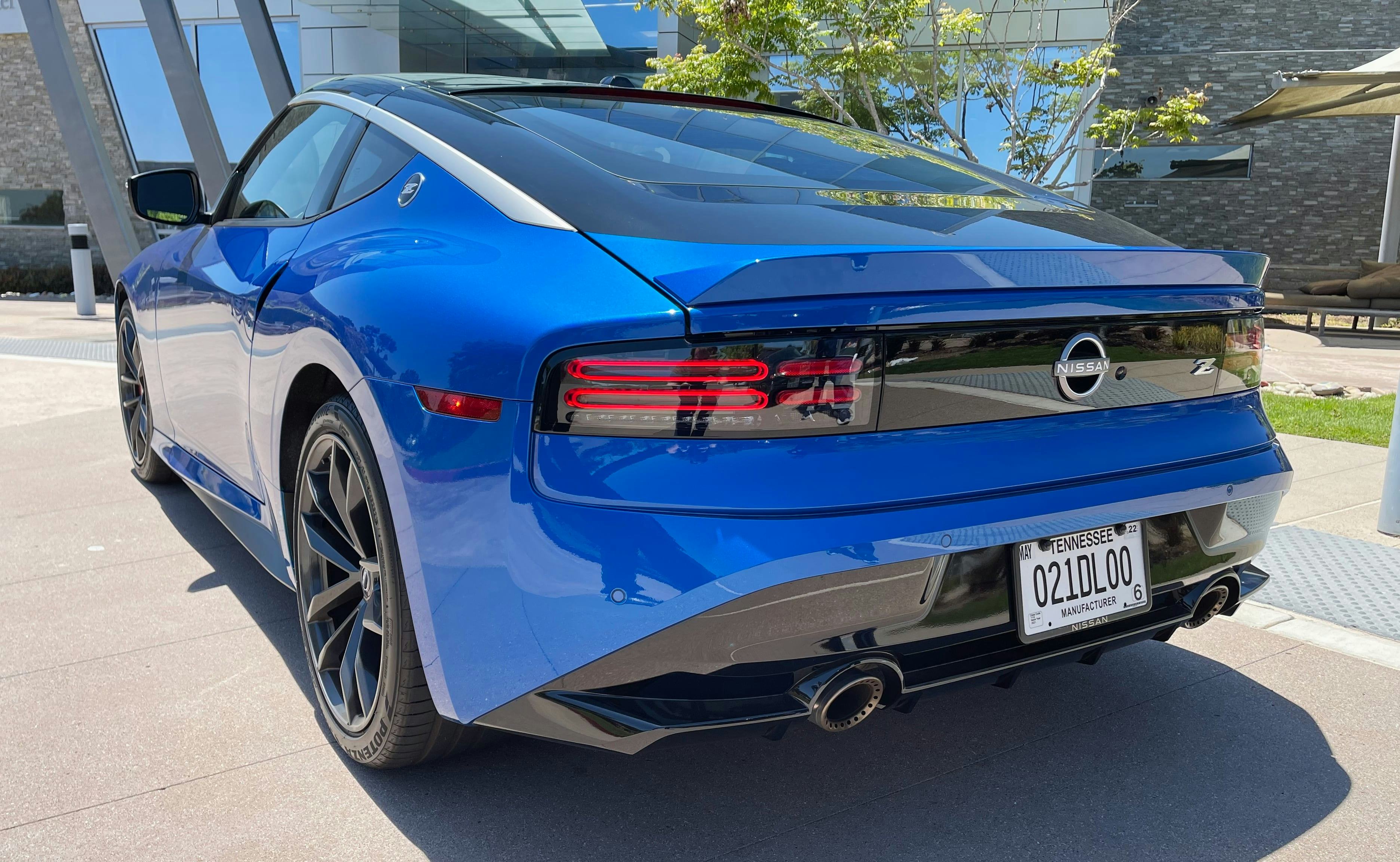
Wonderful design touches are everywhere on the Z. From the 300ZX-inspired rear taillights to the silver accent line on the roof, meant to evoke a katana samurai sword. Much love and care went into the Z, right down to the small “Since 1969” easter egg at the bottom of the rear glass. That particular detail is even visible from the rearview mirror, lest you forget about the history of the car you’re driving.
The Z has always been a looker, and this one will reward extended glances with something new from every angle.
Stay on top of the automotive revolution and sign up for Jordan Golson’s free car reviews newsletter. This review is also published in the North State Journal.







